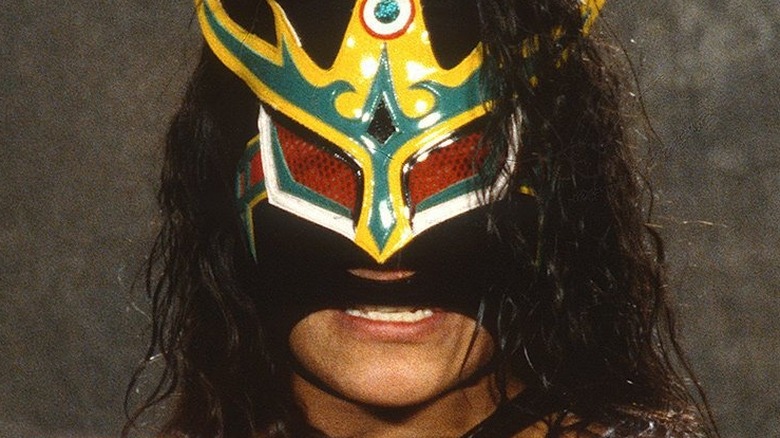Eric Bischoff Explains Why WCW Unmasked Cruiserweight Star Juventud Guerrera
At SuperBrawl VIII in 1998, Juventud Guerrera became the first of what would be several luchadors to unmask on WCW programming. 25 years later, Eric Bischoff stands by his decision to unmask the cruiserweight star.
"So much of the story, so much of the character is communicated to the audience vis-a-vis facials," he said on the "83 Weeks" podcast.
While Bischoff concedes having great matches factor into a wrestler's persona, that is only part of the package. The ability to connect to the audience emotionally is created from the neck up through the eyes and facial reactions, not the moves in the ring. Bischoff feels the unmasking was effective in "adding value" to Guerrera as he was an "extremely good-looking guy and had great facial expressions."
Critics against the decision to have Guerrera — and later on Rey Mysterio and Psicosis — unmask cite the historical and cultural connection masks have in Lucha Libre. For a wrestler to lose their mask, they're losing their identity as well as the lore they have built throughout their career. "When the mask is off, the magic is gone," said Rey Misterio Sr in A&E's "Biography: WWE Legends" special on Rey Mysterio.
Bischoff understands the argument and the tradition behind the masks but was blunt in his rebuttal. "We're not in Mexico, folks, we're in Philadelphia." However, "enhancing the history, the legacy and the meaning of the mask" is something Bischoff wishes he had done better as it would've added more value when they did unmask somebody. "It would've been a greater stake in the match but I don't regret taking the mask off Juvi at all," he said.
If you use any quotes from this article, please credit "83 Weeks" podcast with a h/t to Wrestling Inc. for the transcription.
